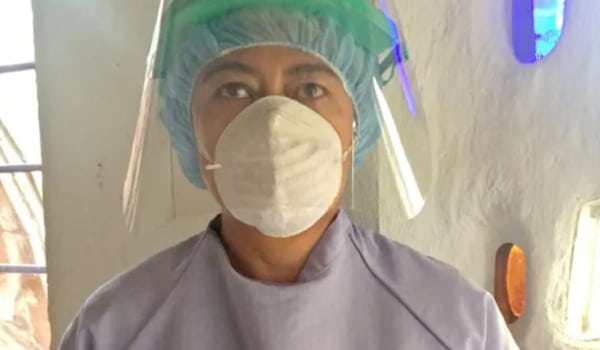
by María Espinoza
“Back then, I was getting ready to go to the Mexico City airport to travel to the annual meeting of a group of sexual and reproductive health specialists when a rumor was spreading online that the first case of Covid-19 had been documented in Mexico. It swiftly became clear that the rumor was fact. A colleague, who coordinates training for our loose and vulnerable national network of abortion providers, reported that her husband, an internist at one of Mexico’s most exclusive private hospitals, was treating that first Covid case…
“Our group was divided at first on the seriousness of the threat. In the leftist circles within which I move, most people believed it was a false flag to control Mexico’s poorest and most vulnerable classes. Soon, though, I would see patients in my own clinic in Morelos with respiratory symptoms who would die before they were tested. In New York City, people I know and love would be hospitalized. It was clear that a national emergency was on the horizon, and that, like health workers throughout the world, I would be on the front lines…
“I was afraid to see my patients, and yet felt more committed than ever, given the other never-ending health emergency for women who wish to end their pregnancies in a state where it is prohibited. As Covid took hold, my patients also were afraid. When they came to appointments, they brought what protective gear they could, simple face masks or cloth bandanas. We spaced out appointments as much as possible. My assistants and I used what safeguards we had at our disposal: boots, a double layer of gloves, hairnets, and surgical gowns, along with face shields we purchased from the same guy who sells pirated DVDs in the pueblo.
“The medical procedures continued, as they had to, even as my breath fogged up my plastic face shield, and I struggled to see what I was doing. The risk of making a mistake increased, even when conducting this simple outpatient procedure. Anxiety took hold, and I had to fight the impulse to tear off my uncomfortable and unwieldy gear…
“And yet, everything turned out fine, every time…
“Today, the challenge for my risky line of work is getting some of my patients used to telemedicine when possible. While many of my younger patients couldn’t be happier at the chance to treat their problems without leaving their room, others don’t trust it, especially older women who are used to making eye contact, judging me, and feeling my presence.
“Yet telemedicine is a necessity now. The script I use to start my calls has become second nature:
“My name is Maria Espinoza. Everything we discuss will be absolutely confidential. Everything I ask you is with the aim of getting enough information to make a diagnosis that helps me provide you with the best treatment possible. The main objective of this consultation is to allow you to exercise your rights as a woman. That’s why you should feel free to interrupt me whenever you feel the need to, and so that you can participate actively in this process. I’m here to listen to you, and you have my complete attention.”
“I had always started patient conversations this way, but when the phone is our only link, it has become the key to getting close to the lives of the women I treat, gently…
“This crisis within a crisis has taught me that responding to change with agility makes us stronger…. The pandemic brought paralysis to my work at the beginning, but it didn’t last long. Women began to knock at my door, as they always have, and always will. I had to respond. Fear, commitment, responsibility, propelled me forward. But above all, the will to live and help other women live….”
“The will to live—and to help other women live and have access to abortion—kept me going.”
FULL TEXT: The Nation, by Maria Espinoza, 22 July 2020



